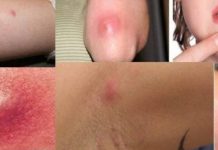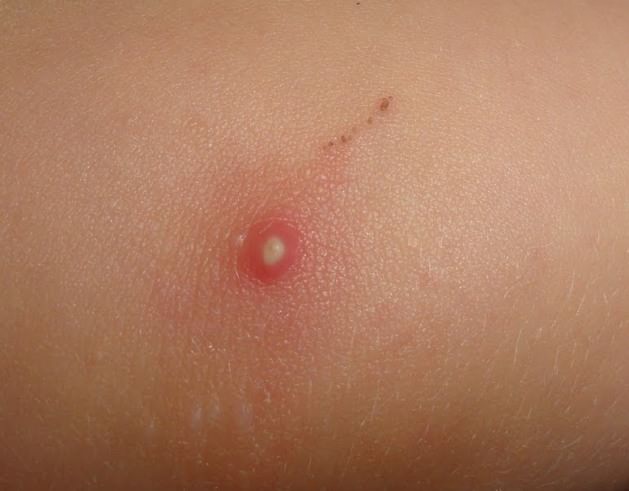Another name that used to describe a boil is a skin abscess or a pimple, but essentially it’s just an infection deep inside the skin layer. I would like to describe a boil as being a really big zit or a pimple because that’s what it looks like. Below are several different cause of boils. The most common cause is considered to be clogged sweat glands or ingrown hair follicles that become infected. Believe it or not, an ingrown hair can also cause a boil on your skin surface. People with compromised or repress immune systems are more likely to get boils. That includes people with diabetes also. Here we are explaining few effective ways to treat a boil.
How to Cure Boils Naturally?
If you have been seeking the internet for knowledge on how to cure boils, you apparently found that most websites suggests that you should go to your doctor and be put on antibiotic or take medicines. I think that’s a bit original when boils can be naturally cured at home. If, however, after you have tried to cure the boil by yourself, but the techniques you applied it doesn’t work, then go to your physician quickly.
Causes of Boils:
Most boils are caused by a germ. This germ enters the body through tiny nicks or cuts in the skin or can travel down the hair to the follicle. There are some health problems that make people more sensitive to skin infections, including:
- Poor cleanliness.
- Exposure to hard chemicals that irritate the skin.
- Diabetes
- Problems with the immune system.
- Poor nutrition
Symptoms of Boils:
A boil begins as a hard, red, painful swelling. Over the next few days, the swelling becomes pale, larger and more sensitive. Soon a pouch of pus forms on the top of the boil peak. These are the signs of an infection:
- The skin around the boil becomes infected and swollen
- More boils may develop around the original one.
- You suddenly develop a raised temperature near that area.
- Nearby lymph glands may become swelled.
Remedies to Treat a Boil:
Contents
1.) Use Moisture and Heat to Treat a Boil
Soaking the boil, in warm water will help to reduce pain and bring the boil out. Also, a warm, damp compact practice to the skin for 20-30 minutes, 3-4 times a day can also bring the boil out. Once the boil drains, try to wash it with antibacterial mild soap to ensure that no bacteria can enter the fresh wound and cause further infection of the boil.
2.) Keeping your Wounds Clean to Treat a Boil
Because most boils are caused by that skin-dwelling bacteria called so, it’s best to keep boils open and clean as much as possible. Wash your boil or infected area with antibacterial soap you can also mash soap and sugar together in a bowl to form a paste and transfer the mixture onto a piece of lint big enough. To cover the boil use bandage if a large boil or a large plaster/band-aid to grasp the piece of lint onto the boil. The batter should draw out the boil’s core.
3.) Turmeric to Treat a Boil
Turmeric taken internally can help soften and heal boils in as little in a few days. It has anti-inflammatory and blood clean effects on the body. Just take one teaspoon of turmeric powder in warm water three times a day. You can also make a paste or glue out of this turmeric powder and place it directly on the boil and cover it with a bandage. Be careful as turmeric can stain your skin and your clothes.
4.) Castor Oil to Treat a Boil
Put some castor oil on a cotton ball and position it on the boil. You will need to adjust it with a bandage or a band-aid. Castor oil will draw the bacteria right out of the boil and can heal it in as little few days. Some other remedies are iodine, a paste made of baking soda by combining it with water or you can take an epsom salt bath to get rid of a boil.
5.) Tea Tree Oil to Treat a Boil
After cleaning the boil thoroughly, apply just a drop of tea tree oil on the affected area. This will prevent the infection from spreading. A hot Epsom salt bath is very helpful for curing the boils. Keep on taking bath in hot Epsom salt bath till the boils do not go away completely
6.) Another Effective Remedy for Treat a Boil
Make a paste with 1 teaspoon vinegar and 1 teaspoon milk cream. Add a pinch of turmeric powder to this paste. Applying this paste on the boil will ripen it and guard the boil against becoming septic and also lessen the infection.
7.) Garlic and Onion Juice to Treat Boil
Among several other home remedies, garlic or onion juice is a establish remedy for growing and draining the pus quickly. Apply either of the juice or mix both onion and garlic juice in equal proportions straight on the infected area. Both of them contains of antibacterial features, which help in fast healing and drying up of a boil.
8.) Egg to Treat a Boil
A way to treat and pick out boils. Crack an egg, take the egg white and apply it directly on the boil with the help of cotton balls. Put a dressing or bandage on it and leave it for the whole night. When you wake up in the morning, you will see a big change. Do this as frequently as you like until the boil has gotten the core out or dry out.
9.) Garlic to Treat a Boil
Garlic can be used in a variation of ways to treat boils, thanks to its antibacterial, antimicrobial and anti-inflammatory quality. Make a glue from two to three fresh and raw garlic cloves and apply it onto the boil. Heat one garlic clove and put it stay it onto the boil for about 10 minutes several times a day. Consume two to three raw garlic cloves a day also can produce good results.
10.) Milk to Treat a Boil
Milk has been used as a treatment for boils for ages. It helps promote up the healing method and gives you relief from the pain and swelling. Heat one cup of milk and add three teaspoons of salt; mix it completely. Add some flour or break bread pieces to thicken the mixture. Apply a portion of the mixture to the boil secure it with the bandage. Repeat the process several times a day.














